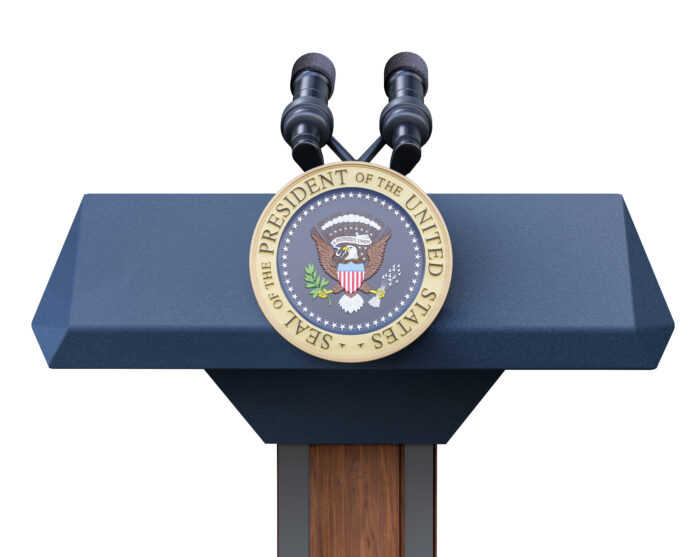“The United States is unequivocal: International humanitarian law must be respected. Too many innocent Palestinians have been killed. Frankly, the scale of civilian suffering and the images and videos coming from Gaza are devastating.”
—US Vice President Kamala Harris, in a speech in Dubai in early December
A vice president plays second fiddle to the president, if he or she is allowed to play fiddle at all. The office is a curious one, more designed to provide a successor than to provide an active member of an administration. But some have wielded a good deal of power. Those who remember Dick Cheney’s time in the George W. Bush administration know that.
Vice President Kamala Harris clearly has no Cheney-esque power in the current administration. Rumors of her being sidelined by the Biden team have circulated almost since the two of them were sworn in.
But recently, there have also been reports that she has been pushing Biden in regard to his policy on Israel and the war with Hamas. Harris, the reports claim, has been arguing for a more sympathetic policy towards the Palestinians and a harder line on Israel.
But is that meaningful at all? Has the vice president swayed any American policy towards Israel? And what is her attitude towards Israel, anyway? None of these things are exactly clear.
Before the vice presidency
Wading back into Harris’ history in regard to Israel leaves varying impressions. Take the topic of the BDS movement that seeks to boycott Israel. Harris has said that she is opposed to BDS. At the same time, Jewish groups called her out during her time as California’s attorney general for not responding to complaints about a website by a state-employed professor calling for a boycott of Israel, which they claimed violated state and federal laws.
Furthermore, when she was already a senator and was running for the presidency, she was one of the six Democratic candidates for president in the Senate who voted against the 2019 Strengthening America’s Middle East Security Act, which included an anti-BDS law. (Amy Klobuchar of Minnesota was the lone Democratic candidate in the Senate who voted for it.)
Harris, like the other Democratic senators who voted against it, said that she was worried that it would violate Americans’ First Amendment rights.
On the Iran deal, which preceded her time in the Senate, Harris said that she supports it, but she also said that she wanted it to have extended sunsets of its provisions and also that it cover ballistic missiles, a position taken by some pro-Israel policymakers and advocates.
To read more, subscribe to Ami





















